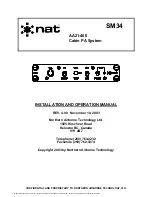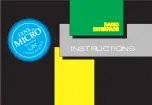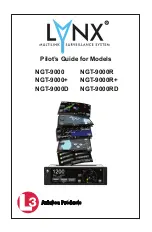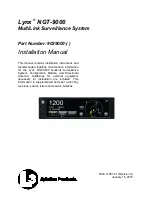
CHAPTER 4
REFERENCE GUIDE
EFD1000H PFD Pilot’s Guide
Page 4-2
091-00012-001 REV C
4.1. Air Data, Attitude and Heading Reference
System (ADAHRS)
One of the many benefits of glass cockpit systems like the Aspen Evolution system is
that they replace old, less-reliable mechanical instruments and sensors with electronic
equivalents. For aircraft primary flight instruments, spinning metal gyros are replaced
with electronic gyros and accelerometers, and mechanical air data instruments
(airspeed indicator, altimeter, and VSI) are replaced by electronic sensors to measure
static and ram air pressures. As we’ve all seen with computers and consumer goods,
these modern electronic systems tend to be smaller, faster, cheaper, and more reliable
than the older technologies they replace, while also enabling many new, advanced
features and capabilities.
An electronic system that replaces the functions of the six primary flight instruments is
often called an ADAHRS (Air Data, Attitude, and Heading Reference System). Sometimes,
two separate systems work together to deliver those functions: an AHRS for attitude
and heading, and an ADC (Air Data Computer) for airspeed, altitude, and vertical speed.
Aspen uses an integrated ADAHRS mounted to the back of the PFD display. While
such systems deliver the same basic information to the pilot as the old mechanical
instruments, they work in very different ways. It is important that the pilot have at least a
basic understanding of how an ADAHRS works to better understand the sorts of failure
modes or degraded performance than can occur, how to recognize the symptoms, and
what corrective actions the pilot can take.
The PFD uses Micro Electro-Mechanical Systems (MEMS) technology and solid-state
accelerometers and magnetometers on all three axes to provide the attitude reference.
Generally, MEMS attitude solutions use multiple sensors and inputs, processed through
Kalman filter software, to derive and validate the attitude solution.
The Aspen system uses more than a dozen different inputs to determine and monitor
the aircraft attitude. In this way, the system can validate the derived attitude indication
by cross-checking the various inputs to the solution for consistency.



































